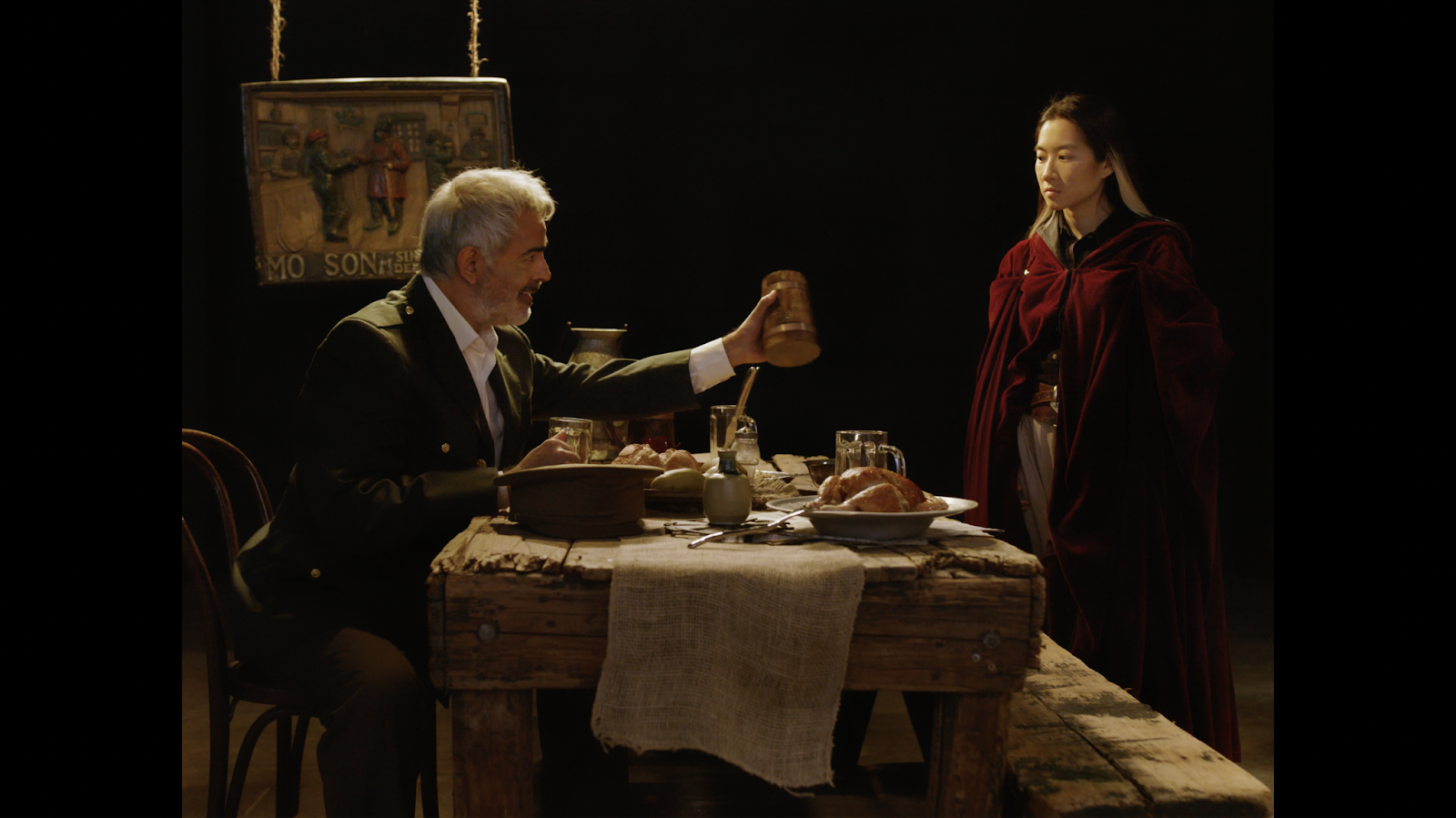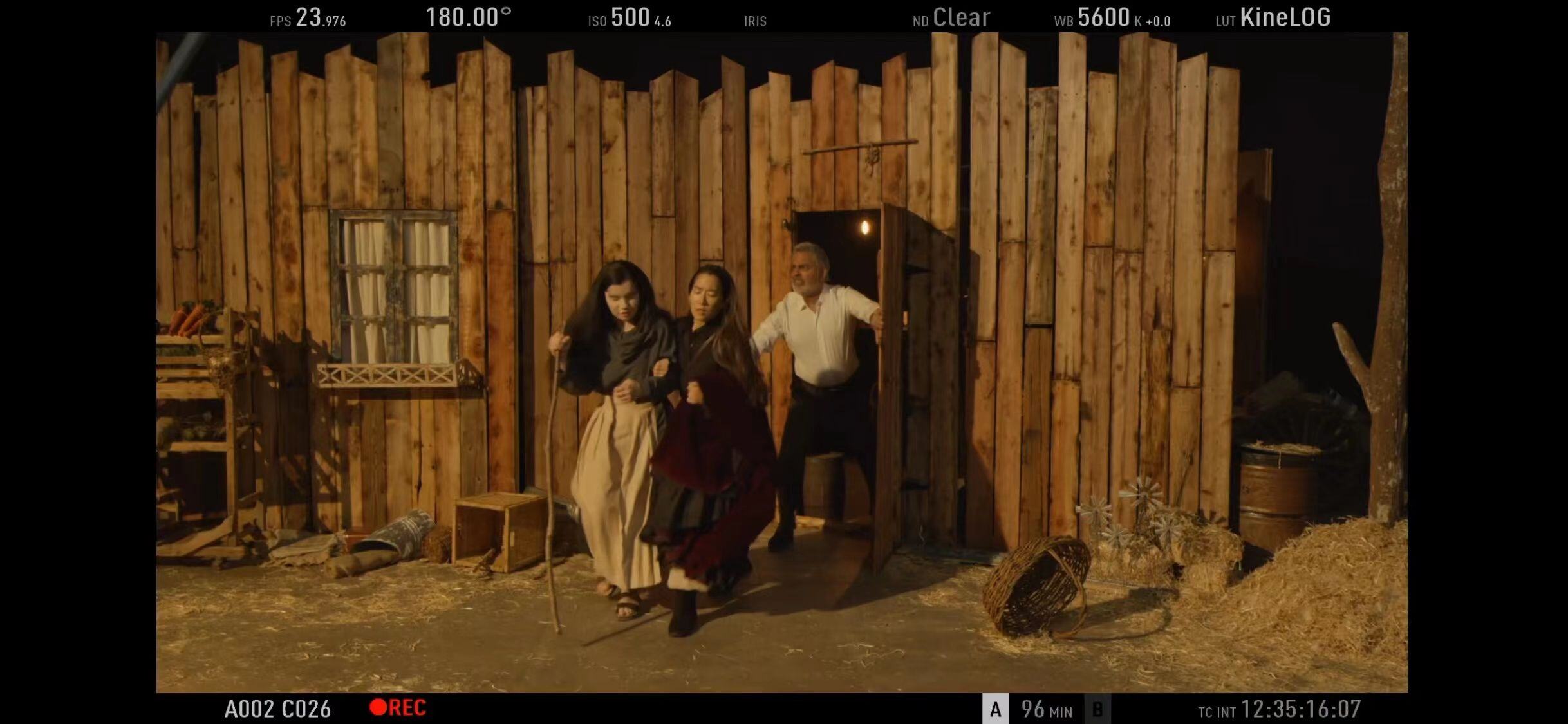
In an era where diversity and authentic representation in Hollywood remain pressing concerns, Solstice, an evocative fantasy drama, emerges as a landmark achievement. The film, directed by Yuwei zhang and produced by Jingruo Wang, tells the poignant story of Lyla, a blind girl navigating a medieval town on the brink of disaster. What sets Solstice apart is not just its visually striking narrative but also its commitment to authentic disability representation, casting a visually impaired actress in the lead role and working closely with North American NGOs and disability advocacy groups to push for greater inclusivity in film.
The Vision Behind Solstice
Solstice is a surreal story set in a town where the sun refuses to set. While the narrative blends fantasy and the avant-garde theatre, it actually reflects the harsh realities both in society and the entertainment industry: the marginalization of individuals and their struggles for acceptance. The film’s aesthetic—a hybrid of live-action and handcrafted puppet theatre — represents the duality of reality and fictionality, reinforcing the film’s deeply poetic directions.
Yet, it is producer Jingruo Wang and director Yuwei Zhang’s dedication to inclusive storytelling that makes Solstice such an unique and profound project. From the early development stages, Wang’s strategic contribution to authentic casting made a real difference. She led an extensive, 7-month-long search across the U.S. and Canada, collaborating with disability organizations and casting platforms to ensure a genuine opportunity could be more accessible for visually impaired talent.
A Producer with a Mission
Wang’s track record in impactful filmmaking has already gained industry recognition. As a recipient of UCLA’s Promise Social Impact Producing Scholarship, awarded for her professionalism and deep passion for transformative storytelling, she has consistently sought to bridge the gap between entertainment and social change. Her work on Solstice is a testament to that vision — it not only about what’s in front of the camera, but also what’s behind it.
“Authentic representation isn’t just about checking a box; it’s about creating and polishing our existing ecosystem,” Wang shared in a statement. “The film industry often talks about inclusion, but when you start actively seeking disabled actors, you realize how few opportunities exist for them. Many have either left L.A. or abandoned their acting aspirations altogether. That has to change.”
Behind the Scenes: Building an Inclusive Ecosystem
Beyond casting, Wang took a holistic approach to accessibility on set. She facilitated training sessions with crew members, consulted with NGOs specializing in disability support, and ensured that blind and visually impaired artists were involved in various stages of production. From mentorship programs to accessibility audits, Wang treated Solstice as both a film and a pilot program for a more equitable production model.
Her efforts have not gone unnoticed. Industry peers and academic institutions alike have praised Wang’s methodology, with many citing Solstice as a case study in ethical and innovative production.

In addition to Solstice, Wang’s another successful recent work, Chowmein Holiday, centered on elderly Asian women—a rarely represented group in mainstream cinema. The film tackles the themes of identity, aging, and social invisibility through sharp wit and genre-bending storytelling. It is currently screening at numerous international film festivals and has gained significant attention for its bold narrative voice and strong visual storytelling.
The short has sparked discussion about aging and gender stereotypes, both among Asian community and outside of it, and is being recognized for both its social impact and commercial viability. With distributors and platforms increasingly seeking fresh, diverse voices, Wang’s project stands out as both timely and marketable.
The Future of Impactful Filmmaking
With Solstice now entering the festival circuit, screening across North America, Asian and Europe in prestigious film festivals as official selections, Wang’s name is increasingly associated with a new wave of socially conscious producers who refuse to compromise on authenticity. The film not only amplifies the conversation around disability representation but also sets a precedent for future productions striving for real inclusivity.
Wang’s work on Solstice is part of a larger artistic mission. With a professional background spanning China, France, Peru and the United States, and a growing footprint in the international indie scene, she is currently developing a content brand and production collective focused on blending art, film, and social storytelling. Whether through filmmaking, experimental music videos, docu-fiction hybrids, or cross-cultural collaborations, Wang continues to champion projects that push both form and message.
“I want to produce films that matter—films that make people feel something, question something, or see the world differently,” she says. “We need new systems, new stories, and new ways of making them.”
In Solstice, she has already proven what’s possible when those beliefs are put into practice. The industry would do well to follow her lead.







